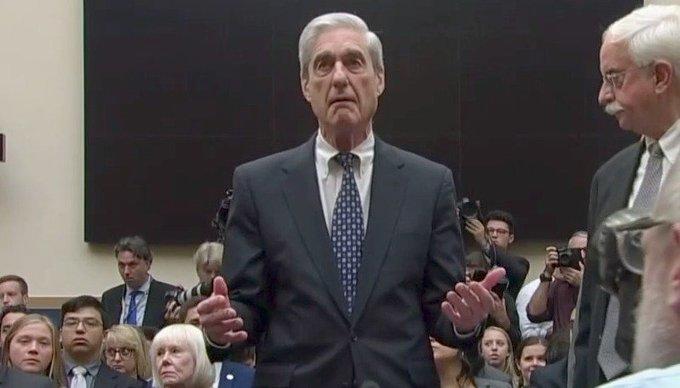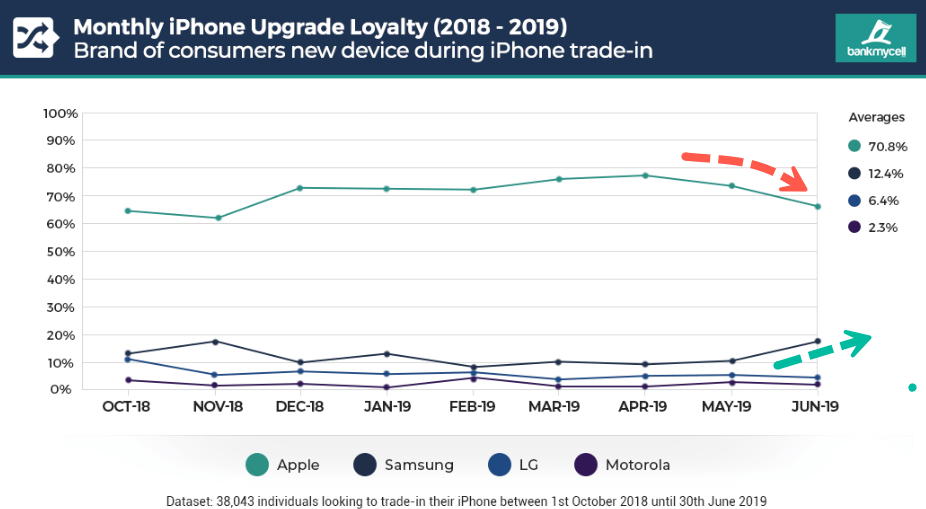Robert Mueller’s dual Wednesday testimonies were, by most accounts, a total disaster for Democrats hoping to bolster the case for impeaching President Trump.
Not only were there no smoking guns, Mueller’s stumbling, fumbling, confused performance alone was a massive backfire for Democrats looking to spotlight the former FBI Director – whose ‘stellar reputation’ as a career public servant melted away to reveal a befuddled old man who was clearly unfamiliar with his own report.
Robert Mueller literally just said he wasn’t familiar with Fusion GPS. My Lord. My Lord.
— Mollie (@MZHemingway) July 24, 2019
Drug test everyone in Washington. Everyone! pic.twitter.com/ETcLrgwpJ6
— MATT DRUDGE (@DRUDGE) July 24, 2019
Don’t take our word for it. Filmmaker Michael Moore perfectly captures the somber tone amongst Democrats panning Mueller’s Wednesday performance.
“frail old man, unable to remember things, stumbling, refusing to answer basic questions…I said it in 2017 and Mueller confirmed it today,” tweeted Moore, adding “All you pundits and moderates and lame Dems who told the public to put their faith in the esteemed Robert Mueller — just STFU from now on.”
A frail old man, unable to remember things, stumbling, refusing to answer basic questions…I said it in 2017 and Mueller confirmed it today — All you pundits and moderates and lame Dems who told the public to put their faith in the esteemed Robert Mueller — just STFU from now on
— Michael Moore (@MMFlint) July 24, 2019
Moore was joined by the likes of Chuck Todd, Michael Isikoff, and NeverTrumper Bill Kristol.
WATCH: Did Democrats get a dramatic moment from Robert Mueller’s testimony this morning? #MuellerHearings
“On substance, Democrats got what they wanted,” says @chucktodd
“On optics, this was a disaster.” pic.twitter.com/57GzwADE4f— Meet the Press (@MeetThePress) July 24, 2019
“On optics, this was a disaster,” tweeted Todd.
On substance, Democrats got what they wanted: that Mueller didn’t charge Pres. Trump because of the OLC guidance, that he could be indicted after he leaves office, among other things. But on optics, this was a disaster. #MuellerHearings
— Chuck Todd (@chucktodd) July 24, 2019
“Impeachment’s over,” said ANC News Senior National Correspondent Terry Moran.
ABC News Senior National Correspondent Terry Moran on Democrats’ Robert Mueller hearing: “impeachment’s over” pic.twitter.com/X0l9EPTuL6
— Ryan Saavedra (@RealSaavedra) July 24, 2019
CNN’s Oliver Darcey tweeted “Seems pretty clear at this point that Mueller is not the best spokesperson for his own report.”
Seems pretty clear at this point that Mueller is not the best spokesperson for his own report.
— Oliver Darcy (@oliverdarcy) July 24, 2019
Yahoo News’ resident deep state conduit Michael Isikoff even agreed, “Mueller seems increasingly befuddled.”
Mueller seems increasingly befuddled.
— Michael Isikoff (@Isikoff) July 24, 2019
Even NeverTrumper Bill Kristol struggled to find a silver lining.
These could both be true: Robert Mueller isn’t a dazzling or dynamic or even a particularly compelling witness at a congressional hearing; and his report, along with his testimony, is entirely truthful and damning.
— Bill Kristol (@BillKristol) July 24, 2019
White House counsel Jay Sekulow sums it up:
…who, as hard as they tried, were unable to establish either obstruction, conspiracy, or collusion between the Trump campaign and Russia. It is also clear that the Special Counsel conducted his two-year investigation unimpeded.
— Jay Sekulow (@JaySekulow) July 24, 2019
The American people understand that this issue is over. They also understand that the case is closed.”
— Jay Sekulow (@JaySekulow) July 24, 2019
via ZeroHedge News https://ift.tt/2JO1FGW Tyler Durden




